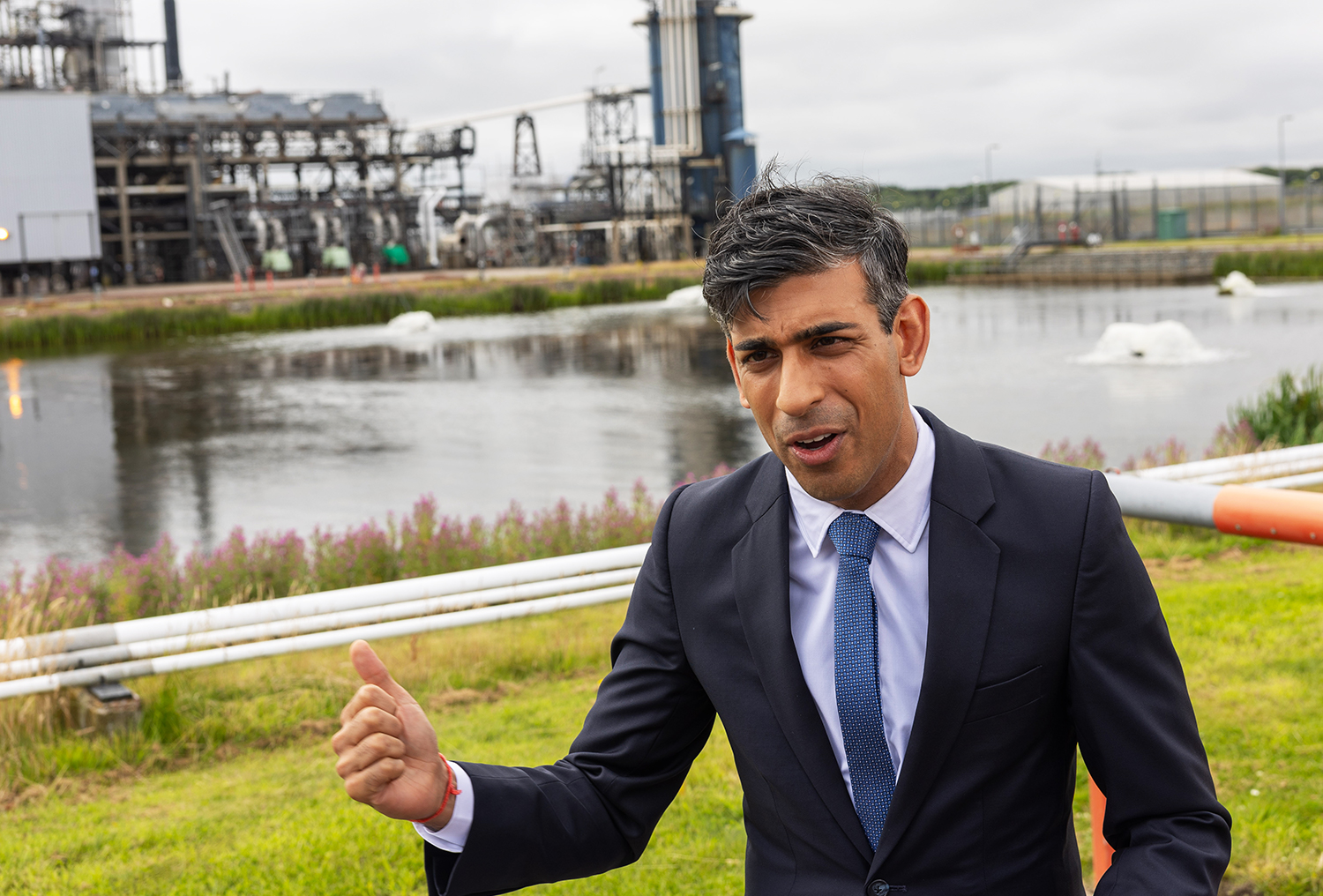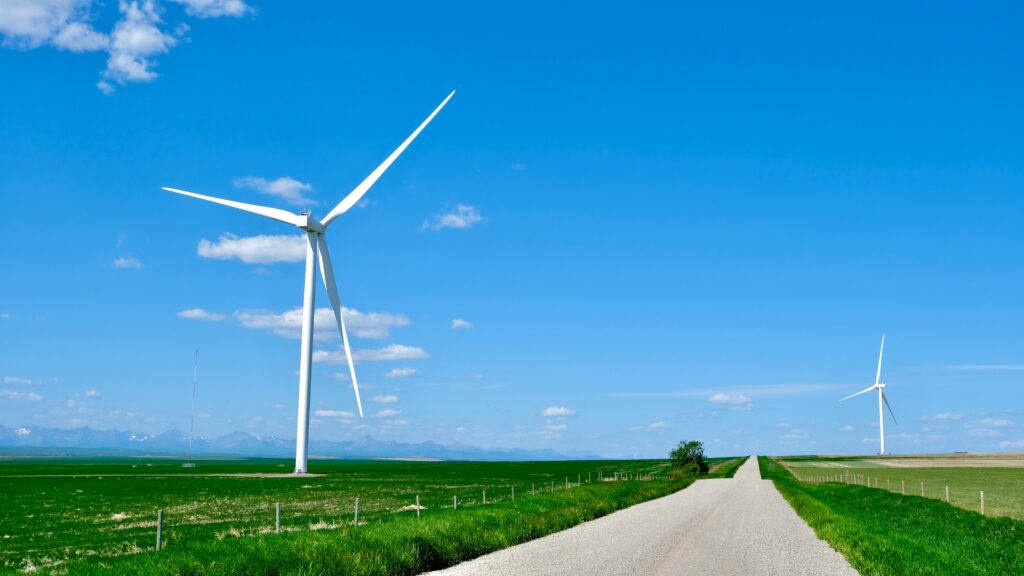The Conservative Party received a £2 million donation in March from a petrochemicals executive whose business interests include a Russian textiles plant, DeSmog can reveal.
Amit Lohia, dubbed the “Prince of Polyester” by Forbes, made the donation on 29 March – the second largest amount handed to the party so far this year.
The Indian-born businessman serves in a number of senior roles at family-run fertiliser and plastics conglomerate Indorama, including as a board member and non-executive director at Indorama Ventures, a Bangkok-listed company that manufactures and distributes petrochemicals and wool yarns. Lohia has no shareholdings in Indorama Ventures, according to its website.
Both Lohia and his wife are listed on Companies House as living in England, having seemingly moved to London in 2016.
Indorama’s co-founder and chairman is Sri Prakash Lohia, Amit’s father, whose net worth of $7.1 billion makes him the world’s 350th richest person. The Lohia family’s vast wealth is predominantly built on plastics and fertilisers made from refining polluting oil and gas, the primary drivers of the man-made emissions that cause climate change.
Indorama Ventures is the majority shareholder of hygiene fabrics firm Avgol, having acquired the company in 2018. Avgol, which is headquartered in Israel, has a Russian subsidiary operating south of Moscow, producing millions of tonnes of material for hygiene products every year. Avgol also has production sites in the United States and China.
Russia has faced unprecedented sanctions over the nearly 18 months since President Vladimir Putin’s invasion of Ukraine, which has resulted in more than 350,000 casualties.
“It’s shameful that the party of government has been found taking donations from a Russia-linked petrochemicals executive, almost 18 months after Vladimir Putin’s tyrannical invasion of Ukraine,” Green Party Deputy Leader Zack Polanski told DeSmog.
A spokesman for Amit Lohia said that he made the donation to the Conservatives in a personal capacity. “Avgol Russia makes materials used in babies’ nappies and feminine hygiene products. It represents less than 0.19 percent of Indorama Venture’s operations,” they added.
Representatives of Avgol declined to comment. Indorama Ventures did not respond to requests for comment. None of the companies or individuals named in this piece appear to have made statements in support of Vladimir Putin or Russia’s war in Ukraine.
Last week, Prime Minister Rishi Sunak taunted the Labour Party about its decision not to invest in new North Sea oil and gas, accusing the party of protecting “Russian jobs” and claiming that Labour’s plan would endanger UK energy security by supposedly entrenching the UK’s reliance on imported fossil fuels.
Labour Leader Keir Starmer has said that his party would reduce fossil fuel imports by investing in domestic renewable energy.
“Talk is cheap, and the Tories’ public stance against Russia is completely at odds with their private love of Russian-linked money,” said Alexander Kirk, fossil fuels campaigner at environmental and social NGO Global Witness.
From July 2019 to the time that Putin launched his invasion of Ukraine, the Conservatives accepted £2.3 million from donors linked to Russia. Last year, an openDemocracy investigation found the party had taken £62,000 from Russia-linked donors since the start of the war.
DeSmog revealed in December that Russia’s state-owned gas giant Gazprom expected to continue exploring new reserves in the North Sea, having paid itself a £28 million dividend from drilling operations in the area. UK and Dutch subsidiaries of the firm still had stakes in multiple fields more than nine months after the invasion of Ukraine began and despite its chief executive being under UK sanctions.
The government and senior Conservatives have strongly asserted their opposition to Putin’s regime and his war in Ukraine. In May, Sunak warned that Russia must “pay the price” for the Ukraine invasion and announced new sanctions on the country’s metals, financial and energy sectors.
Lohia’s Tory donation has also raised wider concerns among campaigners about how the British political system allows a few big money donors to fund political parties.
“While seeking big donations from a small number of people may be expedient from a fundraising perspective, this approach raises legitimate questions about the relationship between money and influence in British politics, which are all the more alarming when major party donors include those with business links to Russia,” Rose Zussman, policy manager at Transparency International UK, told DeSmog.
The Conservative Party did not respond to DeSmog’s requests for comment.
Trading in Russia
Lohia’s donation has raised further concerns over the links between Russian commerce and British politics, in the wake of Vladimir Putin’s February 2022 invasion of Ukraine.
The UK has joined western governments in imposing extensive sanctions against Russia and those linked to the Kremlin following the invasion. None of those listed in the article have been sanctioned.
In relation to UK companies, the government says it is for them “to make their own commercial decisions as to how to pursue business outside these sanctions”.
Over a thousand companies, including dozens of major multinational corporations, have publicly announced that they are curtailing operations in Russia, according to a regularly updated list compiled by the Yale School of Management.
Indorama Ventures is listed as Avgol’s majority shareholder and owns 65.97 percent of the company, according to the latter’s financial report for Q1 2022.
Avgol’s Russian subsidiary is based in Tula Oblast, a region around 120 miles south of Moscow. Avgol specialises in producing a type of nonwoven fabric made with polymers and, according to the Indorama Ventures website, the Russian plant generates 27 million tonnes of material every year.
Indorama Ventures says that the Russian site was acquired back in 2007, though Avgol itself was not acquired for another 11 years.
The Avgol Q1 2022 financial report shows that the firm had planned to open a major new production line in Russia, but was concerned about the impact of the Ukraine war on supplies.
“The uncertainty created following the Russian invasion of Ukraine and the sanctions imposed on Russia prompted great uncertainty on the Russia market landscape, and in specific, our ability to import equipment into Russia,” the report said.
The company said that it would “continue to closely monitor the situation there, while in parallel consider alternative locations for the new production line”.
‘Take Big Money Out of Politics’
As well as raising concerns over the links of its donors to Russian business, critics are also concerned by the Amit Lohia’s involvement in polluting petrochemicals.
Lohia’s Tory donation was made the day before ‘green day’ (later rebranded as ‘energy security day’), one earmarked by the government for a rollout of green energy announcements. The occasion was seen by environmentalists as lacking adequate policies to tackle climate change, with the government admitting that it would not achieve its own emissions reduction targets.
Sunak last week confirmed that hundreds of new licences would be granted for North Sea oil and gas exploration, while his Energy and Net Zero Secretary Grant Shapps has said that the government plans to “max out” the UK’s North Sea reserves.
The International Energy Agency has stated new oil and gas fields are incompatible with restricting global heating to 1.5C, and that net zero requires “huge declines in the use of coal, oil and gas”.
As DeSmog revealed in March, the Conservatives received £3.5 million in donations from polluters, fossil fuel interests and climate deniers in 2022.
“The current incentives for political fundraising are not in keeping with a system that centres on the public good. Politicians of all stripes need to put aside partisan differences and come together to take big money out of politics,” Rose Zussman of Transparency International UK said.
Subscribe to our newsletter
Stay up to date with DeSmog news and alerts







